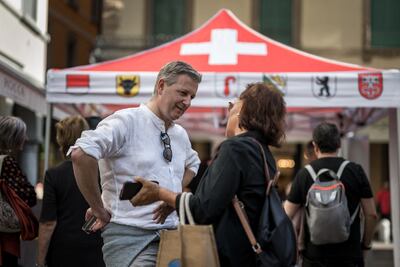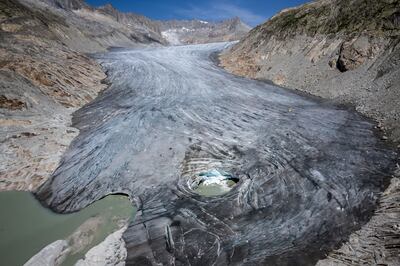Voters have gone to the polls in Switzerland to select the make-up of their country's parliament.
Polls reveal a resurgence in support for both right-wing Swiss People's Party and the Socialists, eroding some of the ground the Greens took at the last elections four years ago.
The Swiss People's Party (known by its German acronym SVP) has the most seats in parliament, with more than a quarter of the 200 seats in the lower house, the National Council, followed by the Socialists at 39.
Aside from the SVP and the Socialists, a new formation calling itself “The Centre”, which was created from the merger of the centre-right Christian Democrat and the “Bourgeois Democrat" parties, has been taking to the hustings and, potentially, could overtake the Liberal party to become the third-largest party in the lower house.
The Neue Zürcher Zeitung newspaper is predicting that the SVP will win 31 per cent of the votes.

Immigration issue
The SVP is seen taking a hard line on immigration, calling for the country's population to be limited to 10 million people.
There are around 8.5 million Swiss citizens, with the majority of them - about 62 per cent - speaking Swiss-German dialects. Around 23 per cent speak French, mostly in the country's west, while the rest are Italian speakers. A small minority of people speak Romansh, a Romance language based on Latin.
At 25 per cent, Switzerland has a relatively high proportion of foreign-born residents and net immigration increased 14 per cent last year compared to 2021.
Like most European countries, Switzerland's election issues have surrounded the economy, migration and climate change.

Retiree Claudine Juillard in Geneva said she mostly voted for Socialist candidates, because “life is getting more expensive, and it's not easy".
Aside from selecting 200 people serve as parliamentarians in the National Council, there are also 46 seats in the upper chamber, the Council of States, being contested.
In addition to parliamentary elections every four years, the Swiss public are consulted on political decisions through a system of referendums, sometimes up to four times a year.
Switzerland's economy is largely built on pharmaceutical companies, insurance firms and banking. It has the highest densities of multinational company headquarters in the world, thanks to its advantageous tax rates.


